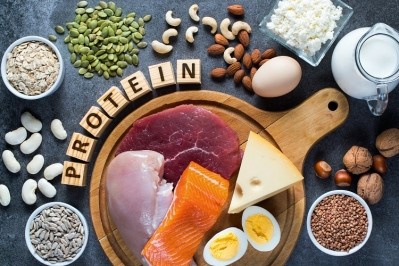Could anti-inflammatory effects of thaumatin boost sweetener industry?

Sweeteners have faced significant negative press in recent months, with consumers becoming increasingly concerned over potential side effects and environmental impact.
Now new research, conducted by the Leibniz Institute for Food Systems Biology at the Technical University of Munich, has identified potential anti-inflammatory effects of natural sweetener, thaumatin. Could this be the boost the industry needs to restore its reputation? And what NPD opportunities does it create?
Does Thaumatin have an anti-inflammatory effect?
Researchers have found that bitter-tasting protein fragments, known as peptides, are generated in the stomach during the digestion of the natural sweetener, thaumatin. In cellular tests, these peptides were found to stimulate acid secretion in human stomach cells and affect inflammatory responses.
“Our research helps to elucidate the health effects of the plant protein, which is widely used as a sweetener,” says Veronika Somoza, head of the study and director of the Leibniz Institute.
Somoza’s team is researching how bitter-tasting food compounds influence the metabolism of stomach cells and therefore overall health. To this end, they established a human gastric cell line (HGT-1 cells) as a test system. In earlier studies, the research team had already discovered that certain bitter substances interact with the stomach cells’ own bitter taste receptors to stimulate the release of protons and the acid production of the cells. Such bitter substances also include peptides produced during the digestion of milk protein.
“Not only bitter-tasting substances, but also the health effects of sweeteners are always in the focus of public interest,” says Phil Richter, first author and doctoral student at the Leibniz Institute. “Based on our earlier findings, we, therefore, investigated whether bitter-tasting peptides are also formed from the sweet-tasting protein thaumatin in the stomach, which could have a physiological effect.”
The team had previously identified three peptides, which are produced during the digestion of thaumatin in the stomach and have a bitter taste. So, in order to find out more about the potential anti-inflammatory effects of these three peptides, they investigated how the stomach cells of the test system react to the addition of Helicobacter pylori proteins.

The bacterium, Helicobacter pylori, can cause inflammatory stomach diseases, including stomach cancer, and in contrast to many other bacteria, Helicobacter pylori is able to survive in an extremely acidic stomach environment by neutralising the low pH value of stomach acid. Around half of the world’s population is infected with this pathogen, so finding a way of treating it, particularly through foods and beverages, would be groundbreaking.
“We were able to reduce the induced interleukin release of the gastric cells by up to 89.7%, by adding one of the identified bitter-tasting peptides,” says Richter. “The gastric cell’s own bitter taste receptor TAS2R16 was involved in this anti-inflammatory effect and also in the stimulation of proton release.”
What is thaumatin?
Thaumatin, also known as talin, is a natural, low-calorie sweetener. It was first found as a mixture of proteins, isolated from the katemfe fruit in West Africa. Although very sweet - around 1,600 times sweeter than sucrose - the taste of thaumatin is said to be markedly different to sugar, as the sweetness builds slowly. It is also noted for leaving a liquorice-like aftertaste at high concentrations.
As an EU-approved sweetener (E 957), Thaumatin is used in foods and beverages.
No Acceptable daily intake (ADI) value has been set for thaumatin as the body breaks down the protein completely. Even high intakes are considered toxicologically safe.
Thaumatin loses its sweetening power when baked and cooked.
What does this mean for the food and beverage industry?
This is a huge opportunity for food and beverage brands to formulate and market functional products specifically towards consumers with concerns around inflammation. Functional drinks, in particular, have grown in popularity, as consumers look to their diet to improve their health.
“Drinks that offer health benefits beyond simply hydration have become a hot topic,” says a spokesperson for market insight firm, Mintel. “From kombucha’s gut health benefits to CBD-infused soft drinks, the functional drinks market is expanding and diversifying.”
So what's behind the recent rise in popularity of functional foods and beverages?
“The category is increasingly attracting ‘lifestyle’ users who see these products fitting in with a healthy, active lifestyle,” says Emma Clifford, senior food and drink analyst at Mintel.
What are functional foods and beverages?
Functional foods and beverages are foods and beverages, which claim to have an additional function, through the addition of particular ingredients. These functions typically relate to the promotion of better health.
The term, functional food, can also apply to traits purposely bred into edible plants, such as purple potatoes, which have been modified to increase anthocyanin.
Source: Gastric digestion of the sweet-tasting plant protein thaumatin releases bitter peptides that reduce H. pylori induced pro-inflammatory IL-17A release via the TAS2R16 bitter taste receptor
Published online:
DOI: 1 August 2024
Authors: Phil Richter, Karin Sebald, Konrad Fischer et al.




























